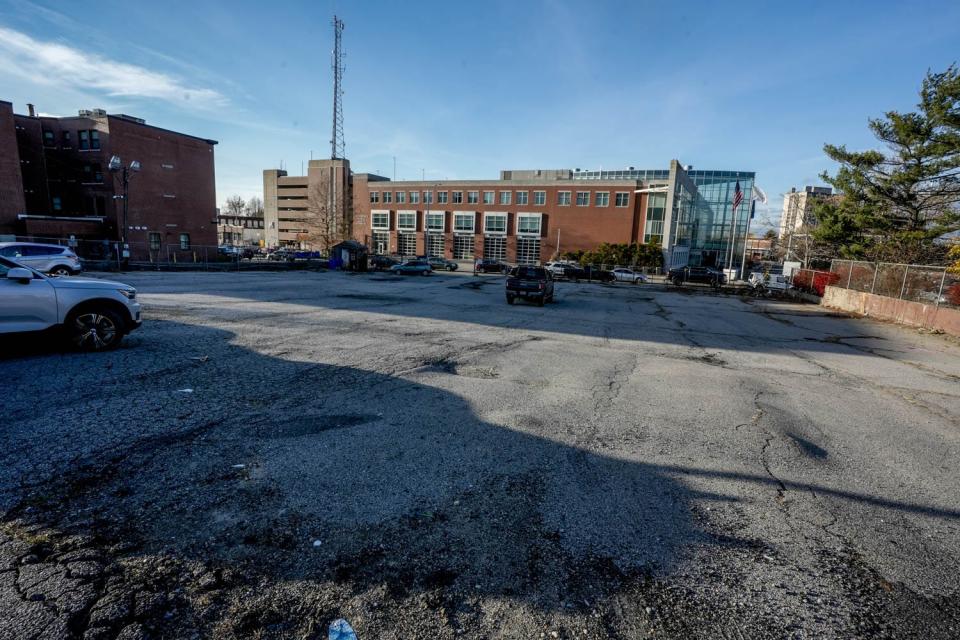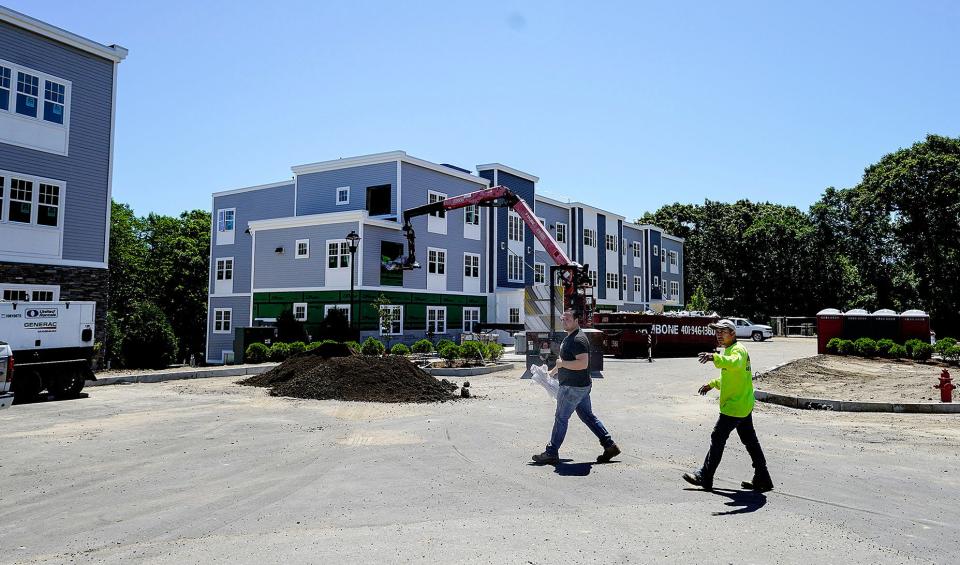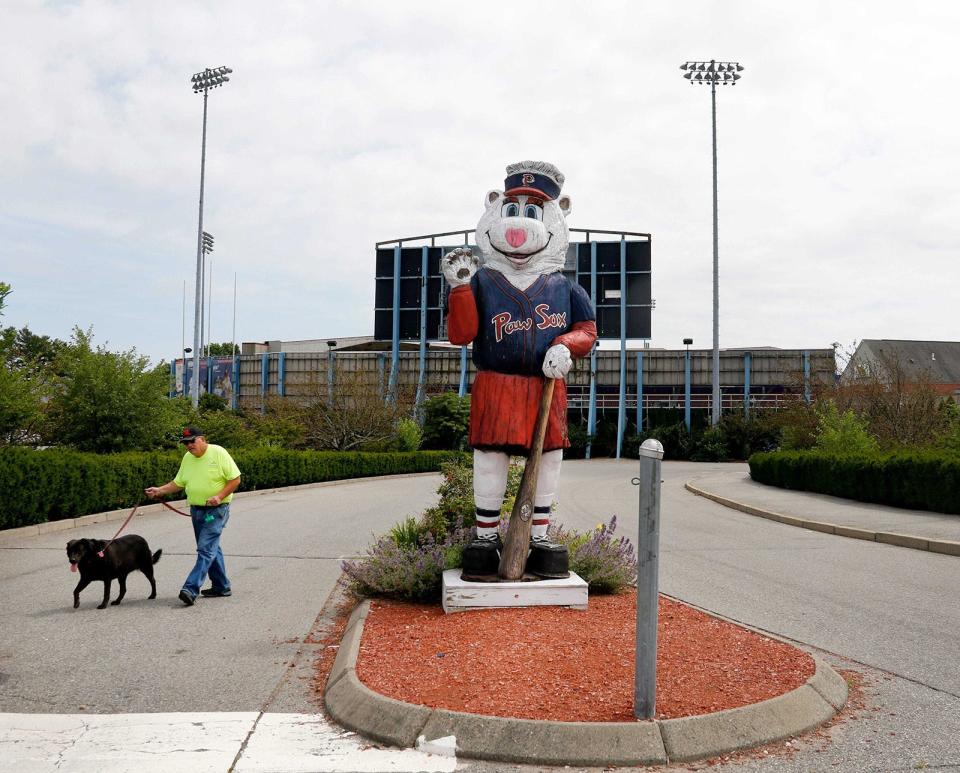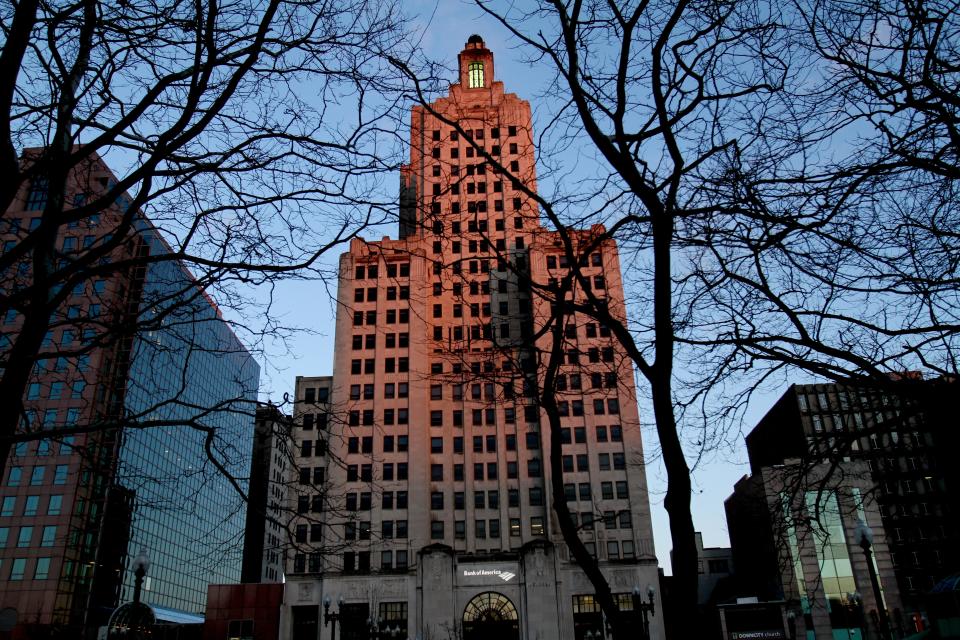New developments in the Ocean State: Apartments, subsidies and stadiums
Development in Rhode Island is a big deal, between a housing crisis, skyrocketing rents, sport stadiums and the ever-present conversion of commercial spaces into housing.
The Providence Journal is making a concerted effort to cover development in all its various forms, especially as the pandemic has brought new twists and turns to the lives of everyday people.
There's the minutia, like an "affordable" apartment complex proposed in Providence and the fate of the possible Fane Tower. There are feature stories, like a house building program based on "sweat equity" that requires homeowners to literally build their own house.
There are all the market updates and the guides on what to know about selling a house or buying a house right now. And then there's the government coverage, like the subsidies to convert the "Superman" building from offices into luxury apartments. Mill conversions,
Many stories are premium, requiring a subscription, like Patrick Anderson's quest to answer the question, would you be able to live in the "Superman" building if plans to turn it into apartments goes through? and Amy Russo's coverage of the rental market, and the vicious cycle of inflation and rising rents.
If you're not a subscriber, this is your chance to take advantage of our latest offer.
Here are some recent examples of local coverage of growth and development in Rhode Island, which are made possible in part with your subscription.
New apartment building coming to West End, affordable housing proposed in Federal Hill
Local development in Providence has grabbed an incredibly amount of attention, like a proposed apartment complex across from the public safety building on Washington Street, next to the freeway.

The project, which could bring 76 affordable apartments to Federal Hill, still needs city approval and to get funding from the state, which is not guaranteed.
But what exactly is affordable? In this context, it means rent would be capped for those making 60% or less of the area median income, or AMI, ranging from $40,620 per year for a single person up to $72,620 for a family of eight.
A five-story, 41-unit building is come to the West End, replacing an open pit next to Westminster Street. It will sit next to a redeveloped mill building, across the street from the Wiggin Village Apartments and next to Ogie's Trailer Park, a themed restaurant and bar.
Read about the affordable apartment proposal here or the apartment building in the West End here.
Blood, sweat, tears: How Rhode Island families built their own homes
Affordable housing is seemingly at the tip of everyone's tongue as the state comes out of the pandemic, which marked the historic rise in house prices as mortgage rates dropped to record lows and people started moving to Providence from out of state.
How to build it, and where to build it, is a thorny issue, but one program has bypassed the issue entirely by instead focusing on a novel way to bring down costs for low-income families: make them build it themselves.
This premium feature story focuses on two families who built their own homes, in the dead of winter, and achieved a goal they thought they would never achieve: home ownership.
Affordable housing complex in East Greenwich is half open, but the waitlist is 500 people
What happens when an affordable housing complex half opens?
The waitlist is 500 people long. That's what happened at the Brookside Terrace project in East Greenwich, where the affordable apartment complex of 96 units is tucked behind an emergency veterinary center and a separate hospital complex.

The apartments are limited to those making between 30% to 60% of the area median income, or AMI, which means a maximum of $58,020 for a family of four. The project developers said it brings much-needed housing for service industry workers in a municipality that, according to U.S. Census data, has one of the highest median household incomes in the state, $125,000.
Fane swaps parking spaces for apartments in Providence tower plan, but will he build it?
For six years, the proposed riverfront Fane Tower, which if built would be Providence's tallest building, has been floundering. Now, plans for balconies have been scrapped and density increased at the cost of parking spaces.
But the question remains, will it ever get built? The project still has to go before the 195 Redevelopment District Commission, which owns the land.
Read the full story here or past coverage here.
Two sports stadiums, one soccer team and a plan for housing
In 2015, a group of businessmen bought the Pawtucket Red Sox baseball team, declared its longtime McCoy Stadium home unfit and asked to move. Worcester came through with a taxpayer-funded deal to build Polar Park and the team left Pawtucket, taking everything but the literal kitchen sinks.

While new city plans call for tearing down McCoy Stadium and building a high school in its place, the move by the PawSox started a move by city and state officials to find a replacement, finally settling on an initial $400 million plan to build a residential and entertainment complex around a soccer stadium on the banks of Seekonk River, with $60 million in public financing.
Named Tidewater Landing, work on the stadium has broken ground as the project has morphed over time and the estimated costs have ballooned with inflation. The new soccer team now has a name, the Rhode Island FC.
Read more about the stadium saga and the team.
Who's rescuing whom? The "Superman" building, affordable housing and government financing
Much like the Tidewater Landing stadium in Pawtucket, state and local money is being utilized to partially finance the conversion of the "Superman" building, also known as the Industrial Trust Tower, in downtown Providence.

The plan is to convert the office space, which has long been vacant, into luxury housing, with 20% set aside for people making between 80% to 120% of the area median income, or AMI, between $54,150 to $81,240 a year for a single person.
Read more about the high-rise conversion and more about apartment affordability
A mortgage rate rollercoaster as huge demand, and little supply, reshapes the housing market
The trend started during the pandemic, of an upended housing market, has only continued to worsen. Mortgage rates went way down, to record lows well below the rate of inflation pre-pandemic, then went back up to the highest rates in decades. At the same time, the supply of houses in the smallest state in the country is well below what is needed for the demand for housing.
The Providence Journal has kept up with the happenings in the real estate market, with primers on what to know if you want to sell your house, what to know if you're trying to buy a house and the temperature of the market, along.
Priced out: stories of displacement and camaraderie in the vicious rental market
The other side of the housing market is rentals. While prices for houses are way up, so are rents, forcing many people out of housing, causing people to consider new arrangements and pushing some into homelessness.
There's the couple in Newport who left after 41 years after their landlady kicked them out to renovate, and increase the rent. There's the East Side senate candidate who can't run again because she's been priced out of the district she ran in. There's the family of six who bounced from motel to motel, even though the matriarch runs a non-profit.
These are the stories of people priced out during the housing crisis, which has been exacerbated by inflation, creating a vicious cycle, a story of extreme demand and low supply.
Then there are the stories of the tenants who have taken their landlords to task, banding together to improve their conditions, while others have been forced out amid horrendous conditions.
Thanks to our subscribers, who help make this coverage possible. If you are not a subscriber, please consider supporting quality local journalism with a Providence Journal subscription. Here's our latest offer.
Reach reporter Wheeler Cowperthwaite at wcowperthwaite@providencejournal.com or follow him on Twitter @WheelerReporter.
This article originally appeared on The Providence Journal: Housing, stadiums, schools and high-rises mark development in RI

